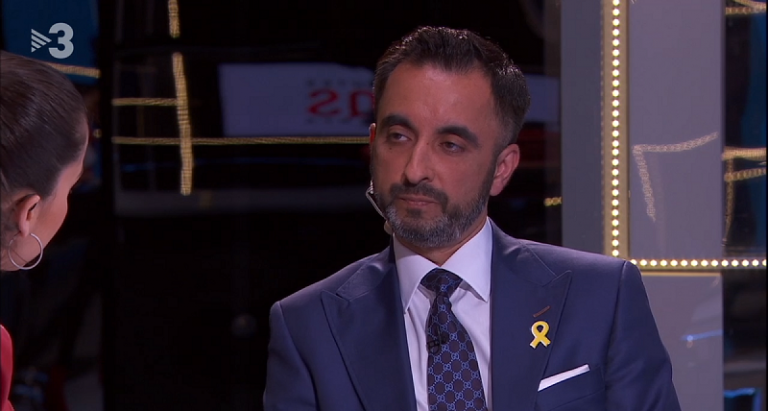
In October 2017 several members of the Catalan Government decided to go into exile abroad for fear of repression on the part of the Spanish State after their having declared independence through a self-determination referendum in which over 2 million people voted. A few days after they had gone into exile, a number of members of the Catalan Government, who had also been dismissed, were imprisoned. Many of them are still in prison. A European Arrest Warrant (EAW) has been issued against Clara Ponsatí for the crimes of rebellion with violence and misappropriation of public funds which, if she is convicted, could carry a prison sentence of over 30 years.
Aamer Anwar, dean of Glasgow University, is also the defence lawyer of Dr Clara Ponsatí, who is a former member of the Government of the Generalitat and currently exiled in Scotland. A prominent lawyer and staunch defender of human rights, Anwar has played a leading role in campaigns against racism in the UK, as well as forming part of movements such as Stop the War and platforms for welcoming refugees.
Anwar, interviewed in the programme Preguntes Freqüents (Frequently Asked Questions) broadcast by Catalan public television (TV3) last May 12, harshly criticised the repression exerted by the Spanish State and cast serious doubts on the credibility of the Spanish judiciary, which he accused of not being independent and of perpetrating “political persecution” not only of Ponsatí but also of those other members of the Catalan Government who are either exiled or in prison.
A matter of human rights
For Anwar, this is a matter of human rights for three specific reasons. Firstly, because the case is being handled by the Spanish Supreme Court, which admits no right of appeal, something “unacceptable” because there is talk of prison sentences of up to and even over 30 years, which for someone like Clara Ponsatí, now aged 60, is tantamount to a “death sentence”; secondly, because the procedure might extend preventive detention up to four years before the trial is held, with the detainees’ families hundreds of kilometres away from the penitentiaries; and thirdly, because there is no guarantee either of a fair trial or of the safety of the detainees, precisely because they are in Spanish prisons, in view of the denigrating treatment to which Catalan society was subjected on October 1.
Indeed, Anwar strongly criticised the Spanish security forces, whom he regarded as the “only people who were responsible” for the violence unleashed in Catalonia against law-abiding citizens who on October 1 merely sought to exercise their right to vote. Furthermore, he stated that if tomorrow Nicola Sturgeon called for a vote on independence and Theresa May sent a police force of 7,000 to violently repress it, Scotland would be independent within 24 hours. “That’s not the rule of law, that’s oppression, that’s colonialism: that’s dictatorship.”
The Scottish lawyer stressed the arrogance of the Spanish authorities throughout the entire EAW process, in which they have automatically assumed that all the European countries that have been supporting them would directly extradite Ponsatí and the other members of the Catalan Government in exile. “But they failed, because in Europe the overriding principle is one of justice and human rights,” he stated. Moreover, he defined the EAW as an attempt to “criminalise aspirations to the right to vote” on the part of the Catalan people.
A jigsaw puzzle of criminal offences
For this reason, Anwar expressed his perplexity at the way in which the Spanish authorities attempt to fit criminal offences together as if they were the pieces of a jigsaw puzzle, which reveals that those authorities are becoming increasingly “desperate and they deliberately change the rules of the game”, and here he put forward the example of including the crime of misappropriation of public funds, when the Spanish Government itself has denied this. Furthermore, he pointed out that in Scotland the offences of rebellion with violence and sedition do not exist, but that Spanish magistrate Pablo Llarena intends to redirect the case using sedition if he is unsuccessful with the rebellion charges.
Regarding the political prisoners, Anwar predicted that the process will be a long one, but also that there are only two possible solutions: either at the European Court of Human Rights in Strasbourg or as the result of “peaceful negotiation” with the Spanish State. He stressed, however, that this will be possible only after the “unconditional” release of all the prisoners. On the other hand, Anwar described the strategy of the Spanish authorities calling for a government in Catalonia as a “trap”, since in this way they hope that not only the prisoners but also exiles and the repression would be perceived as of minor importance. This, however, would serve only to further frustrate the people of Catalonia.
Link to the show (in catalan):
Link to the show (in english):